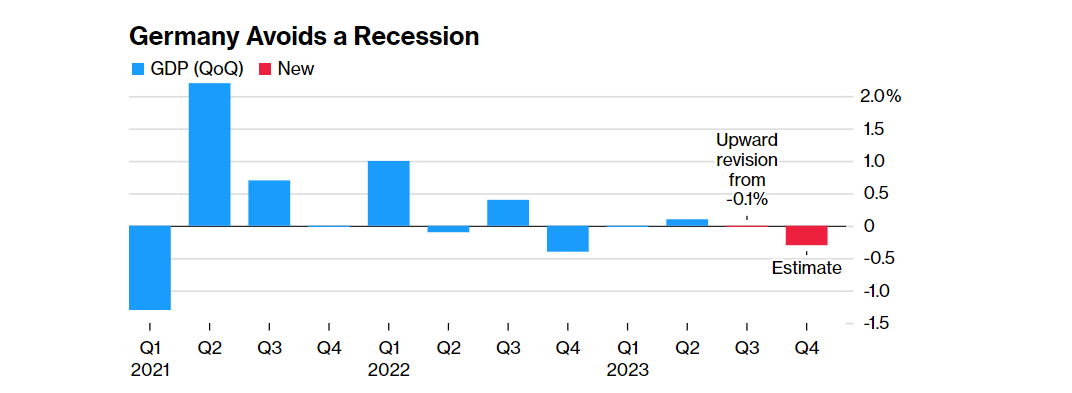Germany's economy weakens, raising concerns for Europe's prospects
 Germany's economy weakens (Getty Images)
Germany's economy weakens (Getty Images)
Last year, Germany's economy weakened for the first time since the COVID-19 pandemic started, according to official data released on Monday. The gross domestic product (GDP), which measures the country's economic activity, was 0.3% lower in 2023 compared to the previous year, CNN and Bloomberg report.
The president of Germany’s Federal Statistical Office, Ruth Brand, explained that the biggest EU economy faced challenges in 2023 over various crises. Even though inflation has gone down a bit, prices are still high, affecting economic growth. Factors like rising interest rates and reduced demand, both within the country and from other countries, also contributed to the fall.
In the last quarter of the year, Germany's GDP dropped by 0.3% compared to the previous quarter. Germany narrowly avoided a recession (two consecutive quarters of falling GDP) in the second half of the year, as there was a period of stagnation in the three months leading up to September.

Germany's GDP 2021-2023 (Details/Bloomberg)
Despite these challenges, employment in Germany increased, with a record 0.7% growth in the workforce, adding 333,000 people in 2023. Foreign workers and more domestic workers entering the job market offset the impact of Germany's aging population, providing a positive aspect in the economic data.
Weak economic growth expected in Europe
This decline in Germany's economy is concerning because Germany is the largest economy among the 20 countries using the euro. A survey by the World Economic Forum suggests that many economists expect weak growth in Europe in 2024, and more than half of them anticipate a global economic slowdown this year.
The weakness in Germany's GDP is seen across the economy, especially in manufacturing, where Chinese demand, high energy costs, and interest rate hikes have taken a toll. Car production and transport equipment manufacturing grew, but the energy-intensive chemical and metal industries declined. Industrial production, mainly manufacturing, shrank by 2%, while exports fell by 1.8%.
Spending by households and the government also decreased, with government spending falling for the first time in nearly 20 years. This reduction was mainly because of the ending of state-financed COVID-19 measures.
Today, on January 15, the World Economic Forum starts in Davos. Politicians from over 100 countries, business leaders, and public figures gather to discuss global threats and challenges. Read more details on RBC-Ukraine.

